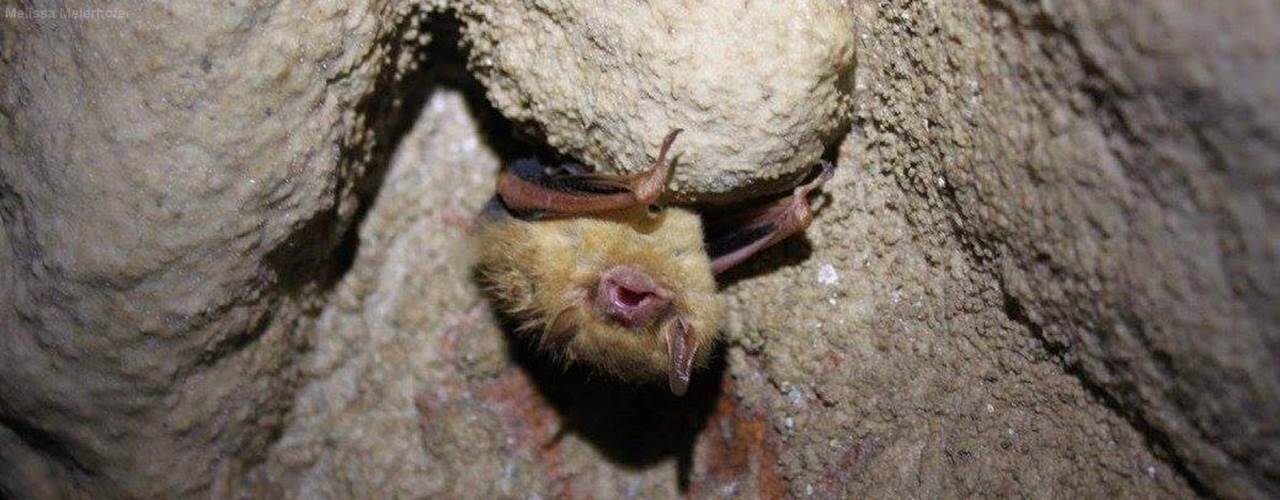IRNR researchers survey bat populations in Texas, anticipating white-nose syndrome
First documented in bats in New York state in 2006, white-nose syndrome (WNS) has steadily spread throughout the eastern half of the country and is expected to arrive in Texas in the near future.
WNS is a deadly fungal disease affecting hibernating bats and has been confirmed in 29 states, five Canadian provinces and, in one lone case, as far west as Washington state. Since January, researchers from the Texas A&M Institute of Renewable Natural Resources (IRNR) Bat and Hibernacula Project have been surveying sites across Texas to monitor winter bats and roosts and assess hibernacula, or hibernating environments, prior to the probable arrival of WNS. The project has received help from the Bat Conservation International (BCI) and is funded by the Texas Parks and Wildlife Department (TPWD).
“So far WNS has spread as close to Texas as Oklahoma, so we want to make sure we have baseline data,” said Melissa Meierhofer, IRNR research associate. “We want to know where the bats and hibernacula are prior to when the fungus comes here, so we can continuously monitor them.”



